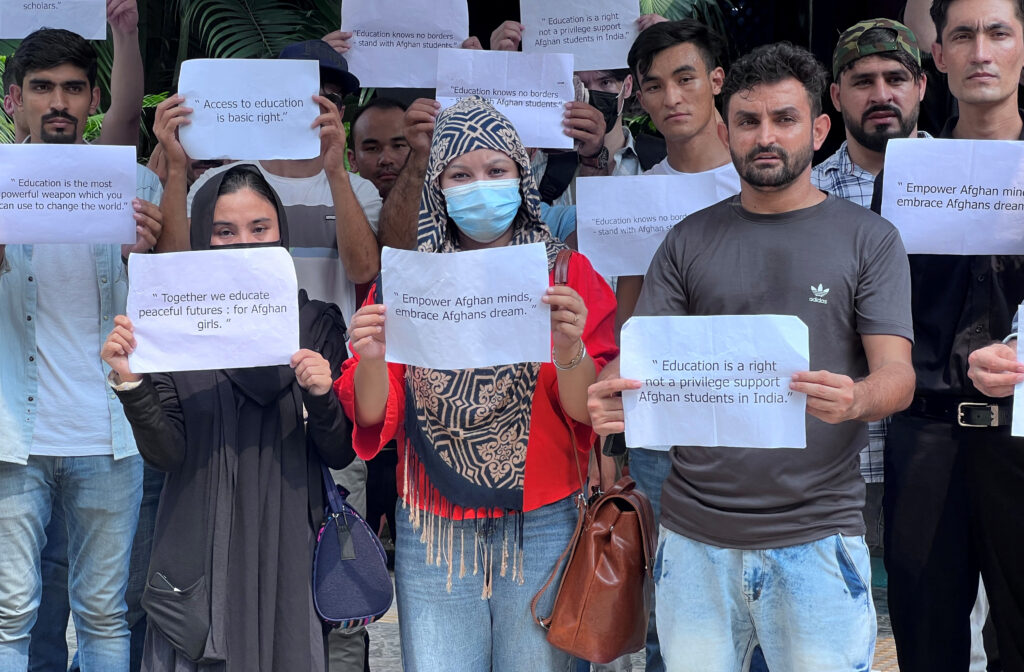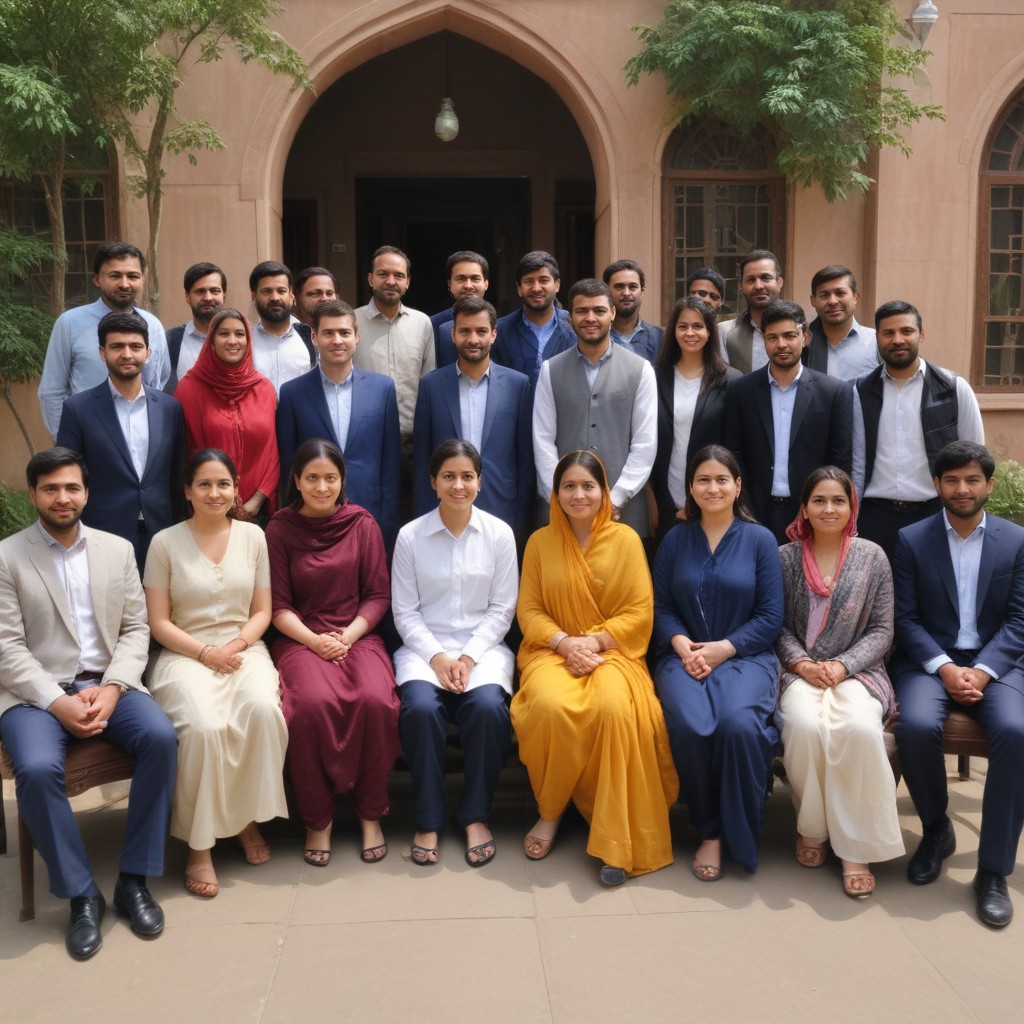
Empowering Afghanistan’s agricultural sector, the India-Afghanistan Fellowship Program offers scholarships for Afghan students to pursue degrees in Indian universities. Learn about eligibility, application process, and more.
The India-Afghanistan Fellowship Program stands as a testament to the enduring relationship between the two nations. Established in 2010, this initiative empowers Afghan students by providing scholarships for pursuing undergraduate, postgraduate, and doctoral degrees in the field of agriculture at esteemed Indian universities.
History and Objectives
The India-Afghanistan Fellowship was launched in 2012 with the aim of promoting cultural exchange and education between the two nations. The program is designed to provide opportunities for Afghan students and professionals to study and work in India, with the goal of fostering greater understanding and cooperation between the two countries. The fellowship is open to Afghan nationals who are pursuing higher education or have a background in a specific field, such as business, engineering, or medicine.
Building Afghan Agriculture Expertise
Recognizing the critical role agriculture plays in Afghanistan’s economy and food security, the program aims to cultivate a skilled Afghan workforce in this vital sector. By equipping students with advanced knowledge and practical experience in Indian agricultural universities, the fellowship program fosters long-term agricultural development in Afghanistan.
Focus on Diverse Specialties
The India-Afghanistan Fellowship Program encompasses a wide range of agricultural disciplines, allowing scholars to specialize in areas crucial to Afghanistan’s agricultural landscape. These include:
- Agronomy
- Horticulture
- Soil Science
- Animal Husbandry
- Agricultural Economics
- Dairy Technology
- Food Science and Technology
This comprehensive approach ensures that fellows gain expertise in various aspects of agriculture, enabling them to address the diverse challenges faced by the Afghan agricultural sector.
Eligibility Criteria
The eligibility criteria for the India-Afghanistan Fellowship Program can be broken down into a few key points:
- Nationality: Applicants must be Afghan nationals.
- Academic Background: A strong academic background in science or agriculture is essential. This typically translates to good grades in relevant subjects like biology, chemistry, physics, or mathematics at the secondary or higher secondary level.
- Program Level: Eligibility may vary depending on the program being applied for (undergraduate, postgraduate, doctoral).
- Undergraduate programs might require a minimum score on the secondary school leaving exam (class 10+2) with subjects relevant to agriculture.
- Postgraduate programs (Masters) often require a four-year Bachelor’s degree in agriculture or a related field with a minimum grade point average (GPA) (around 5.5 on a 10 point scale). Some programs might have specific requirements for the Bachelor’s degree subject area.
- Doctoral programs typically necessitate a Master’s degree in a relevant agricultural subject with a good academic record.
- English Language Proficiency: Since the program operates in English, good English language proficiency is mandatory. This might involve achieving a certain score on standardized English language tests like TOEFL or IELTS.
Additional Considerations
While the above criteria form the core eligibility requirements, it’s important to note that the selection process is merit-based. This means that even if you meet the minimum eligibility criteria, factors like exceptional academic performance, relevant experience in agriculture (even if through internships or volunteer work), and a strong statement of purpose outlining your goals and how the fellowship aligns with your aspirations can significantly strengthen your application.
For the most up-to-date and precise information, it’s advisable to consult the official program announcement released by the Indian Council of Agricultural Research (ICAR) each year. This announcement will detail the specific eligibility requirements for that particular academic year.
Application Process

To be eligible for the India-Afghanistan Fellowship Program, applicants must be Afghan nationals with a strong academic background in science or agriculture. The selection process is merit-based, considering factors like academic transcripts, standardized test scores, and letters of recommendation.
Here’s a general outline of the application process:
- Application Announcement: The Indian Council of Agricultural Research (ICAR) announces the fellowship program typically in the early months of the academic year.
- Online Application: Eligible candidates submit applications electronically through a designated portal.
- Document Submission: Required documents such as transcripts, mark sheets, test scores, and recommendation letters are uploaded during the application process.
- Shortlisting and Selection: A screening committee shortlists qualified applicants based on eligibility criteria and academic merit. Shortlisted candidates may be called for interviews.
- Selection and Announcement: The final selection of fellows is made, and successful candidates are notified.
Benefits for Afghan Students
The India-Afghanistan Fellowship Program offers a multitude of benefits for Afghan students, including:
- Scholarship: The fellowship provides a full scholarship to cover the costs of tuition, living expenses, and travel for the duration of the program.
- Research Opportunities: Participants have the opportunity to conduct research in their chosen field, working closely with Indian experts and institutions.
- Networking: The fellowship provides a platform for participants to connect with other students and professionals from India and Afghanistan, fostering a network of contacts that can be valuable in the future.
- Cultural Immersion: Participants are immersed in Indian culture, gaining a deeper understanding of the country and its people.
- Career Opportunities: The fellowship can lead to job opportunities in India or Afghanistan, or even in other countries, as participants gain valuable skills and experience.
- Access to Higher Education: The fellowship provides opportunities for Afghan students to pursue higher education in India, including Master’s and Ph.D. programs in various disciplines of agriculture.
- Financial Support: The fellowship includes financial support in the form of monthly stipends and annual contingency grants, which can help participants cover living expenses and other costs.
These benefits make the India-Afghanistan Fellowship a valuable opportunity for Afghan students and professionals to enhance their education, skills, and career prospects while fostering greater understanding and cooperation between India and Afghanistan.
A Catalyst for Positive Change
The India-Afghanistan Fellowship Program plays a significant role in empowering Afghan students to become leaders in their nation’s agricultural development. By providing high-quality education and fostering knowledge exchange, the program contributes to:
- Increased Agricultural Productivity: Fellows equipped with advanced skills and knowledge can contribute to improved agricultural practices and yields in Afghanistan.
- Enhanced Food Security: The program supports initiatives that ensure food security for the Afghan population.
- Sustainable Agricultural Development: Fellows can promote sustainable agricultural practices that protect the environment and conserve natural resources.
- Strengthened India-Afghanistan Ties: The program fosters goodwill and strengthens the long-standing relationship between the two nations.
Impact of India Afghanistan Fellowship on career
The India-Afghanistan Fellowship significantly impacts the career prospects of its participants by providing them with a range of benefits that enhance their education, skills, and professional opportunities. Here are some key ways in which the fellowship affects career prospects:
- Higher Education: The fellowship offers opportunities for Afghan students to pursue higher education in India, including Master’s and Ph.D. programs in various disciplines of agriculture. This exposure to advanced education and research in India can significantly enhance their career prospects in Afghanistan and globally.
- Networking: Participants in the fellowship have the opportunity to connect with other students and professionals from India and Afghanistan, fostering a network of contacts that can be valuable in the future. This network can lead to job opportunities, collaborations, and other professional engagements.
- Research Opportunities: The fellowship provides participants with the chance to conduct research in their chosen field, working closely with Indian experts and institutions. This research experience can be a significant addition to their resume and enhance their career prospects.
- Financial Support: The fellowship includes financial support in the form of monthly stipends and annual contingency grants, which can help participants cover living expenses and other costs. This financial support can alleviate financial burdens and allow participants to focus on their studies and professional development.
- Cultural Immersion: Participants are immersed in Indian culture, gaining a deeper understanding of the country and its people. This cultural immersion can broaden their perspectives and enhance their ability to work effectively in diverse environments, making them more attractive to potential employers.
- Career Opportunities: The fellowship can lead to job opportunities in India or Afghanistan, or even in other countries, as participants gain valuable skills and experience. The exposure to Indian agriculture and research institutions can also provide opportunities for collaboration and joint projects.
- International Recognition: The fellowship is recognized by the Indian government and the international community, making it a prestigious and highly valued experience. This recognition can enhance the career prospects of participants, as it demonstrates their commitment to education and professional development.
Overall, the India-Afghanistan Fellowship provides a comprehensive package of benefits that can significantly enhance the career prospects of its participants.
Success stories of India Afghanistan Fellowship
Yes, there are several notable success stories of India-Afghanistan Fellowship participants in their professional lives. Here are a few examples:
- Dr. Abdul Qadir Rahimi: Dr. Rahimi, a Ph.D. fellow under the India-Afghanistan Fellowship, returned to Afghanistan and became the Director of the National Agricultural Research Centre (NARC). He has been instrumental in developing and implementing agricultural research projects in Afghanistan, contributing significantly to the country’s agricultural development.
- Dr. Fazal Ahmed: Dr. Ahmed, a Master’s fellow under the India-Afghanistan Fellowship, returned to Afghanistan and became the Head of the Department of Plant Pathology at the University of Kabul. He has been actively involved in research and extension activities, focusing on plant diseases and their management in Afghanistan.
- Dr. Abdul Ghafoor: Dr. Ghafoor, a Ph.D. fellow under the India-Afghanistan Fellowship, returned to Afghanistan and became the Director of the National Horticulture and Plant Protection Research Centre. He has been working on projects related to horticulture and plant protection, contributing to the development of Afghanistan’s horticulture sector.
- Dr. Nasir Ahmad: Dr. Ahmad, a Ph.D. fellow under the India-Afghanistan Fellowship, returned to Afghanistan and became the Head of the Department of Agricultural Economics at the University of Kabul. He has been involved in research and extension activities, focusing on agricultural economics and policy in Afghanistan.
These success stories demonstrate the impact of the India-Afghanistan Fellowship on the professional lives of its participants. The fellowship has enabled Afghan students and professionals to gain valuable education and research experience in India, which they have then applied to make significant contributions to Afghanistan’s agricultural development.
FAQs
Who is eligible for the India-Afghanistan Fellowship Program?
Afghan nationals with a strong academic background in science or agriculture are eligible.
What documents are required for the application?
Necessary documents typically include transcripts, mark sheets, test scores, letters of recommendation, and a statement of purpose.
How are fellows selected?
Selection is based on merit, considering academic achievements, relevant experience, and potential for contribution to Afghan agriculture.
What are the benefits of the program?
The program offers financial support, quality education, cultural exchange, and networking opportunities.
What is official website ?
https://education.icar.gov.in
Conclusion
The India-Afghanistan Fellowship Program stands as a beacon of collaboration and knowledge exchange. By nurturing the next generation of Afghan agricultural leaders, the program paves the way for a more prosperous and food-secure future for Afghanistan.The India-Afghanistan Fellowship is a prestigious program that provides opportunities for Afghan students and professionals to study and work in India. The program fosters cultural exchange and education, contributing to the growth and development of both nations. With its range of benefits, including a full scholarship, research opportunities, and cultural immersion, the India-Afghanistan Fellowship is an excellent opportunity for those interested in strengthening ties between India and Afghanistan.
References
Read More: Mukhyamantri Kanya Sumangala Yojana

